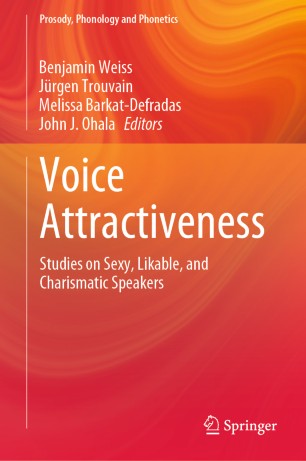 |
ISCApad #310 |
| Tuesday, April 09, 2024 by Chris Wellekens |
5-1 Books
| 5-1-1 | Proceedings of SLTU-CCURL2020 Dear all, we are very happy to announce that the SLTU-CCURL2020 Proceedings are available online: https://lrec2020.lrec-conf.org/media/proceedings/Workshops/Books/SLTUCCURLbook.pdf
This year, LREC2020 would have featured an extraordinary event: the first joint SLTU-CCURL2020 Workshop, which was planned as a two-day workshop, with 54 papers accepted either as oral and poster presentations.
The workshop program was enriched by two tutorials and two keynote speeches.
We will miss the presentations, the discussions and the overall stimulating environment very deeply.
We are thankful to ELRA and ISCA for their support to the workshop, to our Google sponsor and to the 60 experts of the Program Committee, who worked tirelessly in order to help us to select the best papers representing a wide perspective over NLP, speech and computational linguistics addressing less-resource languages.
Looking forward to better times when we will be able to meet in person again, we hope that you will find these workshop proceedings relevant and stimulating for your own research.
With our best wishes,
Claudia Soria, Laurent Besacier, Dorothee Beermann, and Sakriani Sakti
| ||
| 5-1-2 | J.Blauert, J. Braasch, 'The Technology of Binaural Understanding', Springer and ASA-Press My name is Jens Blauert, and you may recall me as an ESCA-Founder and ISCA-Goldmedalist. Although I am professor emeritus since many years, I am still active in science.
| ||
| 5-1-3 | Weiss B., Trouvain J., Barkat-Defradas M., Ohala J.J., 'Voice Attractiveness', Springer 2021Voice AttractivenessVoice attractivenessStudies on Sexy, Likable, and Charismatic Speakers

| ||
| 5-1-4 | Proceedings Speech Prosody 2022 Dear Speech Prosody SIG Members,
As many of you already know, Speech Prosody 2022 was a great technical and social success! Our thanks to Sonia Frota, Marina Vigario, and all the organizers.
The proceedings are already available, at https://www.isca-speech.org/archive/speechprosody_2022/ .
Also, to share a link announced at the closing ceremony, there are now digitized, searchable versions of all past ICPhS proceedings, at https://www.coli.uni-saarland.de/groups/BM/phonetics/resources.html#icphs .
Nigel Ward, SProSIG Chair, Professor of Computer Science, University of Texas at El Paso nigel@utep.edu https://www.cs.utep.edu/nigel/
| ||
| 5-1-5 | Diana Sidtis, Foundations of Familiar Language, Wiley -----
| ||
| 5-1-6 | Cf Contribution to a book on interactions in the production, acoustics, and perception of speech and music, DeGruyter Mouton Publishers. Dear colleagues!
Our special session on the relationships between speech and music at the ICPhS in Prague aroused great interest and received a very positive, lasting response. We are therefore very pleased that we can now build on this positive feedback and invite scholars to submit chapter proposals for an edited collection on the intersections and interactions in the production, acoustics, and perception of speech and music – to be published with DeGruyter Mouton in early 2025.
Please find the complete Call for Papers with all details in topics and timeline under the following link: https://cloud.newsletter.degruyter.com/Speech%20Music – or directly via EasyChair: https://easychair.org/cfp/SLM2023
Submission Guidelines
1. Abstract submission
Please submit a 500-word abstract by February 4th, 2024. In your abstract, please clearly state how your work relates to one or more of the above areas of interest as this will help us structure the volume and invite matching reviewers. All abstracts must be in English. Notification of acceptance of your abstract will be sent by February 11th, 2024.
2. Full paper submission
Upon acceptance of your abstract, you are required to submit your full paper by June 30th, 2024 (approx. 8000 words, excluding references). To ensure the scientific quality of the volume, all submitted papers will undergo a thorough peer review process. Each manuscript will be reviewed by one of the volume editors and an external reviewer, likely chosen from the pool of contributing authors. The review will focus on assessing relevance, originality, clarity, adherence to the thematic scope, scientific rigor, contribution to the field, methodology, and overall scientific quality. Authors will be given the opportunity to revise their papers in response to the reviewers’ feedback.
We look forward to receiving your contributions, and in the meantime we wish you a happy and healthy pre-Christmas time,
Jianjing Kuang, University of Pennsylvania
Oliver Niebuhr, University of Southern Denmark
(Co-editors)
***************************************
|
